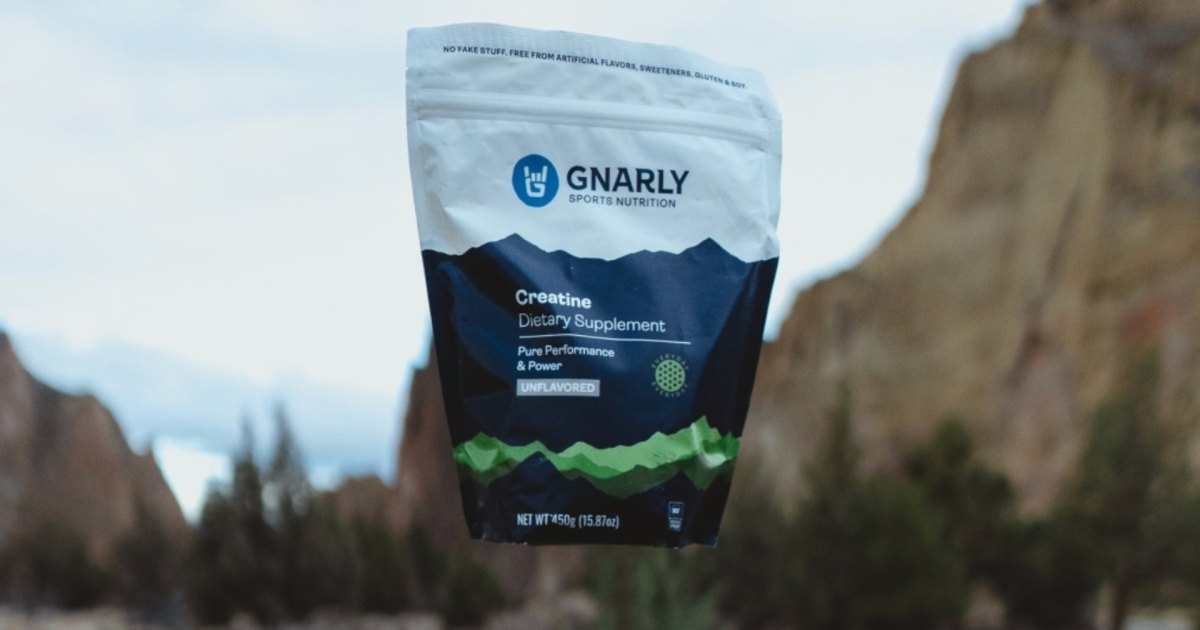No products in the cart.
Fitness Tips
Best Vegan Supplements for Athletes
Maintaining balanced nutrition can be tricky for vegans athletes. Where non-vegan athletes rely on animal products for an abundance of easily absorbed proteins, vitamins, and minerals, vegans need a more resourceful approach to amassing nutritional quotas for an active lifestyle. Experts agree—it’s possible for athletes to maintain adequate nutrition without animal products. But is it realistic? And if so, how? The answer lies in the best vegan supplements for athletes.
“Anyone can be a healthy, successful athlete on a vegan diet,” says Shannon O’Grady, a dietitian with a Ph.D. in nutritional physiology and the Chief Product Officer at Gnarly Nutrition—an all-natural supplement brand committed to total transparency in its products. “You just have to be a little more mindful with your intake,” she adds.
There are a few important factors vegan athletes should keep in mind when adopting a plant-based diet. And there are a few places where adding in supplements can make a huge difference. Here, O’Grady outlines the fundamental challenges of a vegan diet for athletes, along with some techniques, choices, and brands that help vegans overcome them. — as told to Michael Misselwitz
Challenges of a Vegan Diet
Plant-based Proteins: One of the hardest obstacles to a healthy vegan diet is getting enough protein. Plant matter generally offers less protein than animal matter. Plus, the human body doesn’t assimilate the same amount from plant-based proteins as it does from animal-based proteins. While products with soy and pea protein offer plenty of nutritional value, our bodies don’t absorb all of the amino acids in them.
Amino Acids: Another difference between plant- and animal-based proteins is the total level of essential amino acids available—as well as leucine, or branch-chain amino acids. The bottom line is, plant-based proteins generally have lower levels. Soy and pea protein get closest to providing the same amount of amino acids as animal proteins, but you definitely see lower levels of leucine.
The solution in both cases is to take in more plant protein, but because plants take up a lot of volume on our plate and have a higher fiber content, it can be difficult to eat everything you need in meals. For that reason, supplements can be very helpful, especially for athletes who require a lot of protein in their diet.
Vitamin B12 and Iron: These two nutrients are significantly less plentiful in plant-based products as well. There’s also an absorption issue with plant-based iron sources, so it can be really challenging to get the amount the body requires to function healthily.
Essential Fatty Acids: The human body needs Omega-3s (i.e. essential fatty acids), most of which are found in animal foods. You can get a lot of fatty acids, like linoleic acid, from things like flax seed, chia seeds, and walnuts, but the body’s ability to convert them from plant consumption into usable Omega-3s, like EPA and DHA, is pretty poor. You’d have to consume a ridiculous amount of flax or chia seeds to get the equivalent amount from animal products that’s recommended in our diets. Taking a plant-based DHA supplement, which usually comes from products with algae, can provide an excellent boost for vegans.
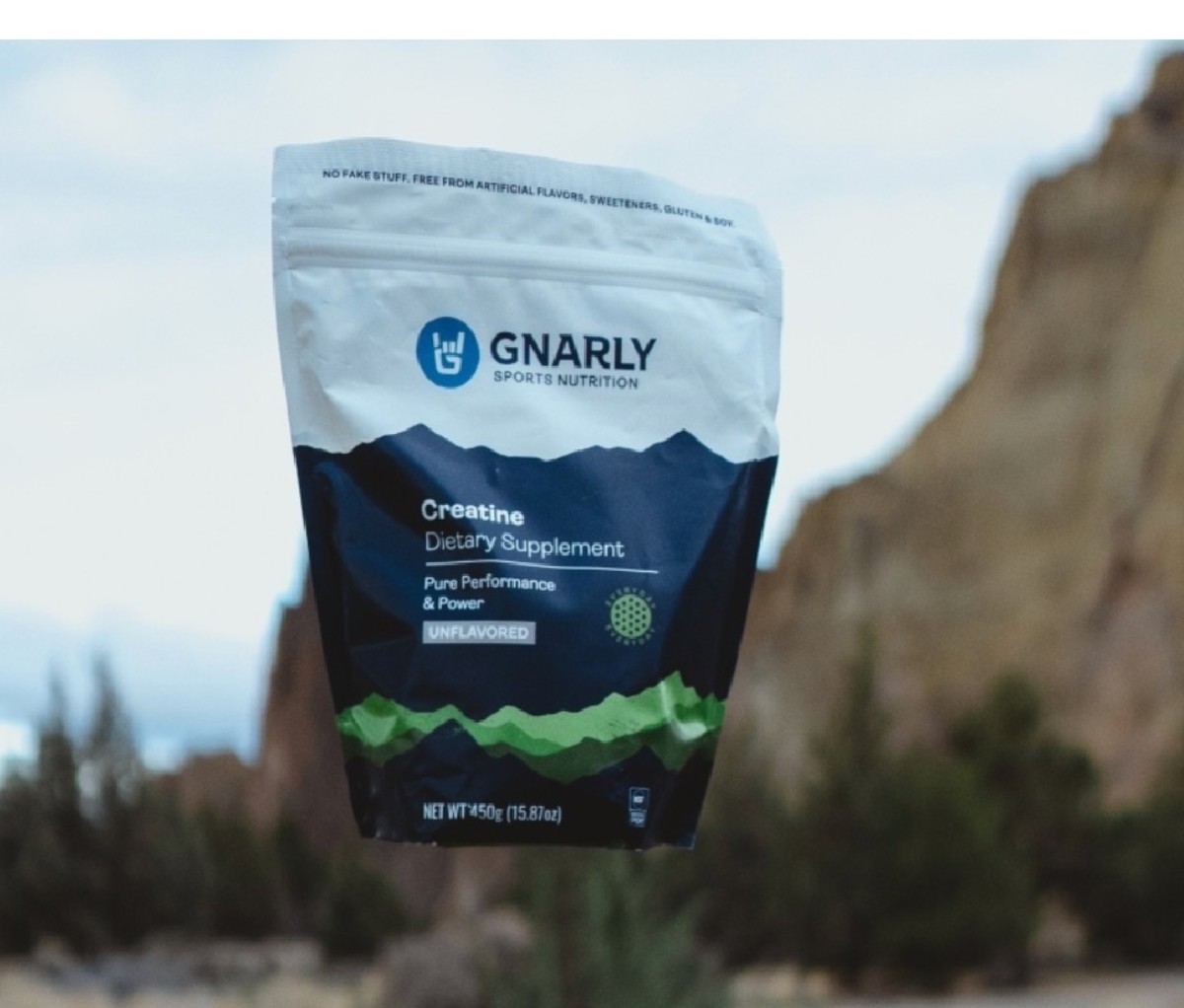
Creatine: While it’s not a necessary supplement for vegans, creatine can make a major difference. The human body generally relies on animal matter to get its creatine. We can synthesize creatine from other amino acids, so vegans can get some that way, but their natural creatine stores are usually relatively low. Vegan supplements with creatine can provide a substantial boost in certain measures of performance—like one-rep maxes or maximum lift in a given amount of time. Those jumps can be up to 20 percent—and can sometimes even exceed what people get from consuming animal products.
Trustworthy Supplements for Vegans
Plant matter provides many nutrients, even more than animal matter in many cases. For the areas where plants fall short, there are supplements that can make up the difference. With the right supplements, you can even exceed a standard American diet in many aspects of nutrition. Of course, not all vegan supplements are created equal, so it really comes down to researching, reading, and analyzing every label to ensure you get what you need.
One great safeguard to finding a quality product is NSF certification—a third-party testing group with a toxicology team that screens products for safety. NSF (National Sanitation Foundation) tests products for individual ingredients to assure that, per serving, you’re actually getting the amount advertised on the label. They also test for micro heavy metals and do a complete pesticide screening.
Here are the vegan supps O’Grady gives the green light.
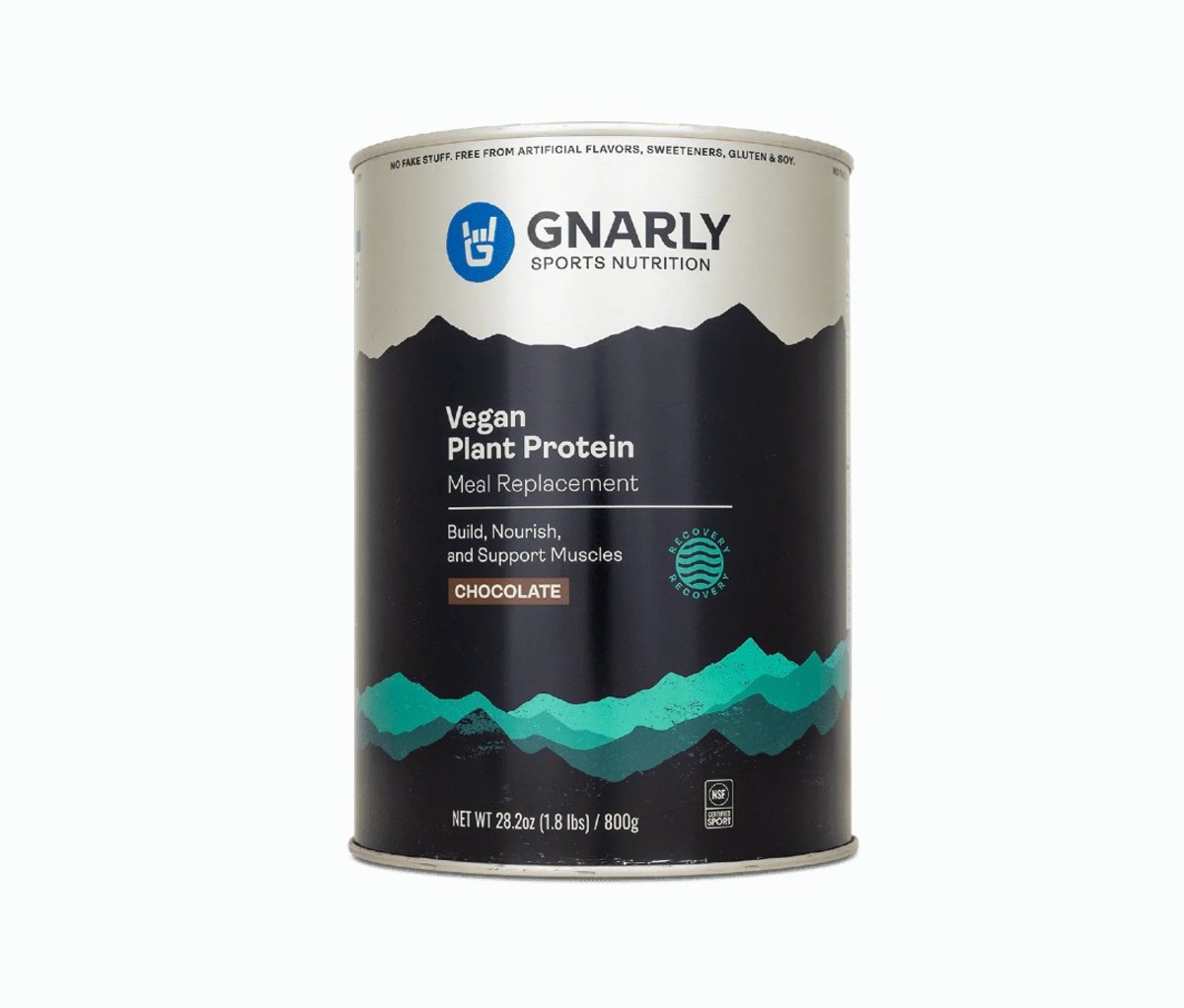
Gnarly Nutrition
With the exception of whey protein and collagen supplements, all Gnarly products are vegan. Our goal is to remove barriers to achieving a healthy diet for as many people as possible. For that reason, we don’t include gluten or soy, because soy is a major allergen and gluten gives a lot of people digestive issues.
Gnarly uses all-natural ingredients, and we list ingredients and quantities on every label—ensuring you know exactly what you’re getting. A selection of Gnarly’s products are NSF-certified—and, one day, all products will be NSF-certified for sport (i.e. every product will be tested for all 300 ingredients on the World Anti-doping Agency’s banned substances list). That’s crucial for pro athletes, but also for consumers who don’t want their product contaminated.
Gnarly has everything from proteins (vegan and non-vegan) to greens and pre-workout—plus an everyday series that’s intended to help with baseline health rather than acute workouts. These are more subtle, but really affect how you perform as an athlete and feel in general. Things like vitamin D, iron, B12 and folate blend, and magnesium glycinate are all important nutrients that help athletes stay healthy.
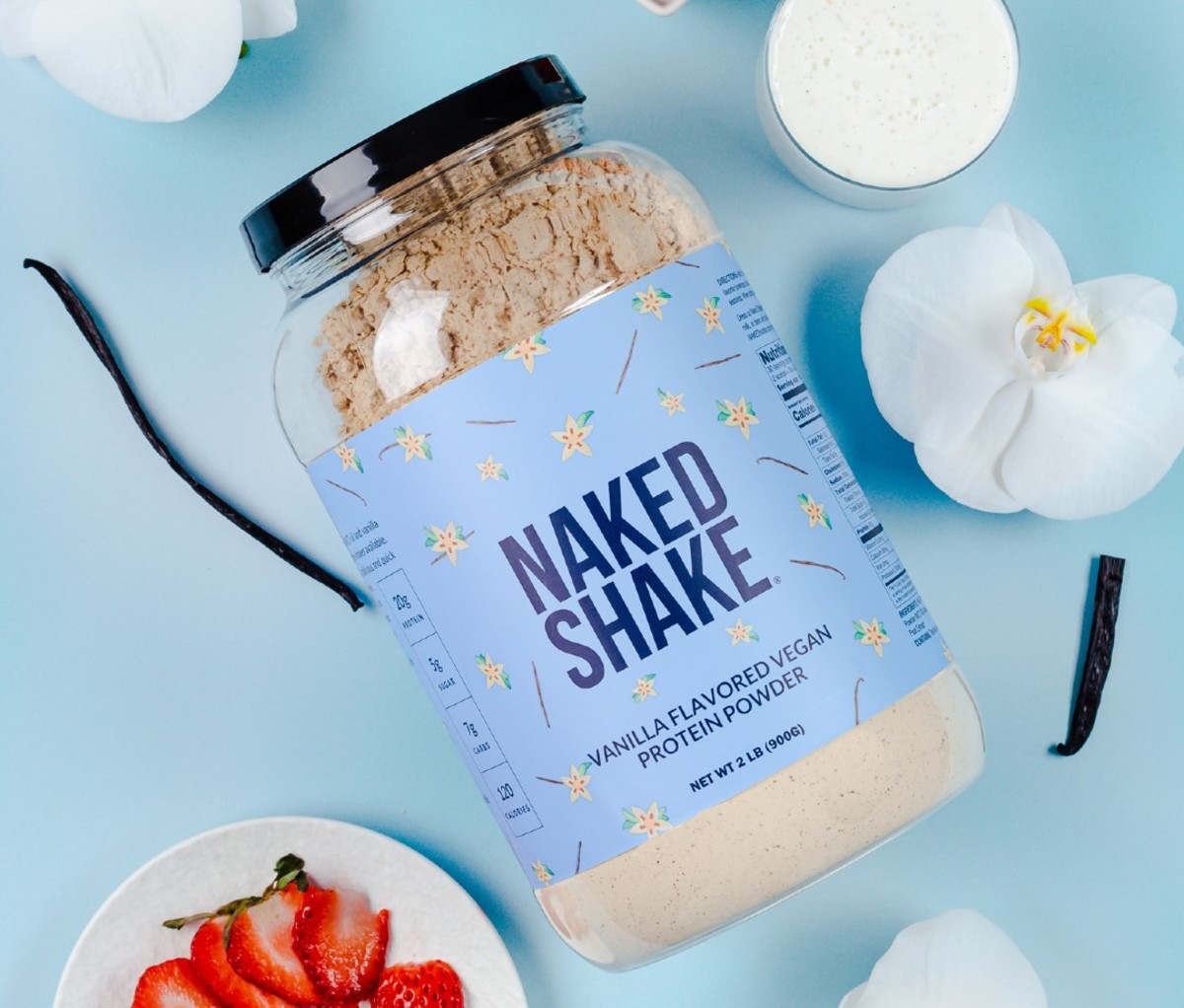
Naked Nutrition
I’ve been an admirer of Naked for a while. I love the fact they use minimal ingredients and only include what you need. They’re forthcoming about what’s in their products. For example, they list the amino acid content per serving on their protein powders.
Naked tries to make a wide range of products for everyone—offering some vegan and non-vegan, some sweet and unsweetened. These days you see a lot of companies that stand on nutritional bandstands, and it’s good to see a company trying to make healthy products available to everyone.
Naked Shake is a great option for vegan protein powder. An athlete needs a dosage of protein with at least 1.75 grams of leucine, although 2.5 grams is the amount your body needs to really kickstart muscle protein synthesis. Naked Shake is in that range, so it’s a suitable protein for athletes. It’s got a little bit of fat in it, which is good for recovery. It’s lower on carbs, which is fine for most people. But if you’re an endurance athlete using this for recovery, you’ll want to supplement your carb intake. For more of a strength workout, where carb usage may not be as high, Naked Shake is adequate. You want at least 20 grams of protein in a serving—and this has just that.
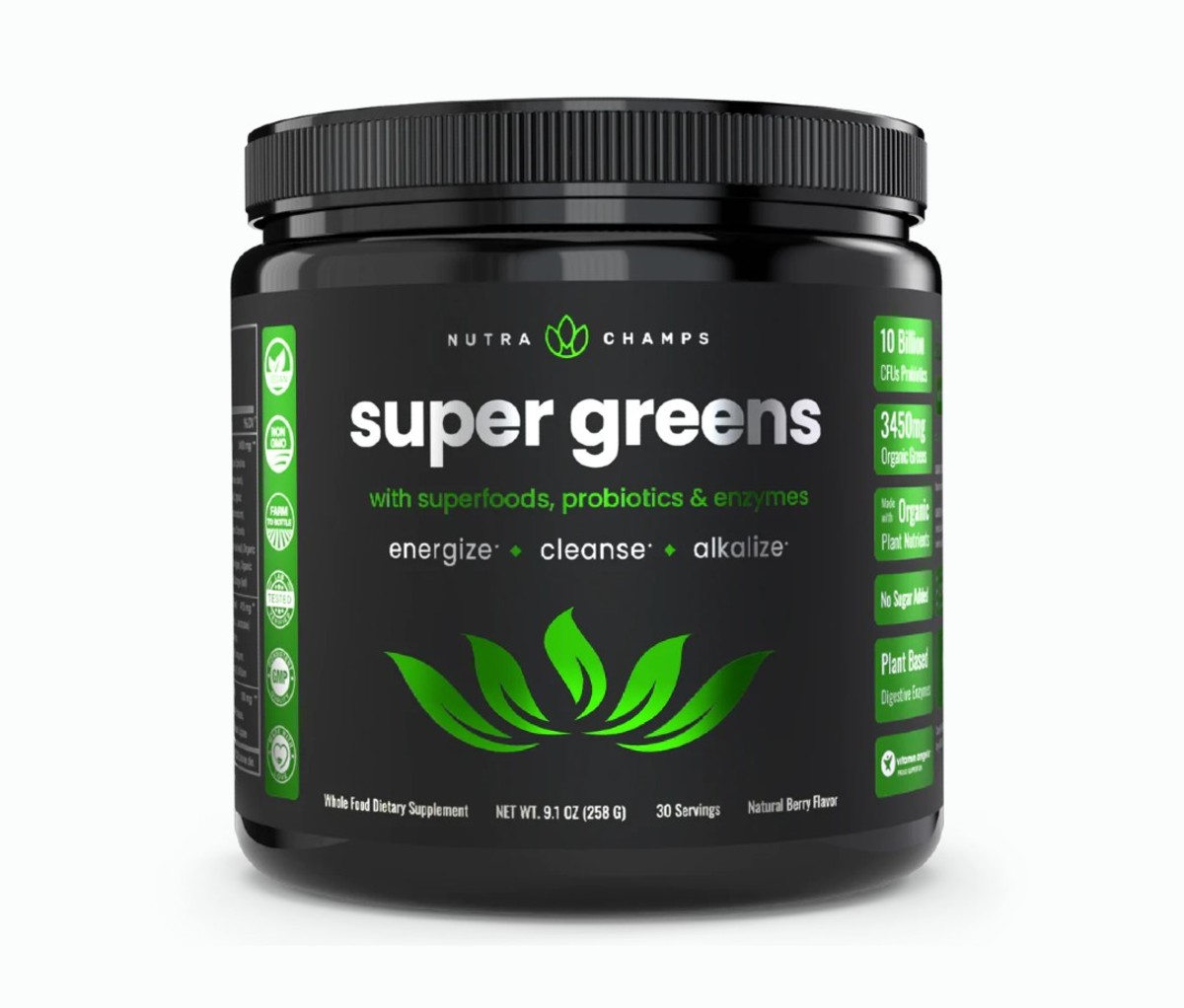
NutraChamps
NutraChamps’ product line offers a huge range of supplements—both vegan and non-vegan—and seem to prioritize transparent labeling, minimal fillers, and clean formulas. Many of their products are organic, and they exclude common allergens like soy and gluten. I also really like that on their website they take the consumer through the ingredients/supplement facts label, explaining the purpose of each nutrient and how/why it was included. They’re also a good source for less-available natural supplements like rhodiola, biotin, or korean panex ginseng.
Something to Note About “Green” Powders
Probably 95% of green powder supplements on the market are made with “blends”—such as an “antioxidant blend” or “greens blend.” Yes, these include a long list of ingredients, but no indication of the actual amount of each of them. If a company doesn’t list the activities in a “blend,” they don’t have to test for those activities, which is a way to get around FDA regulations for label claim testing. Products that use this technique on their label could have adequate amounts of these ingredients—but if so, wouldn’t they want to showcase that on the label? Without that, as a consumer, I have no idea how much of any one of those given ingredients is actually in the product. It’s something to be aware of with this product category. Look for companies that transparently include the amount of each individual ingredient contained in the product. One such company is Athletic Greens.
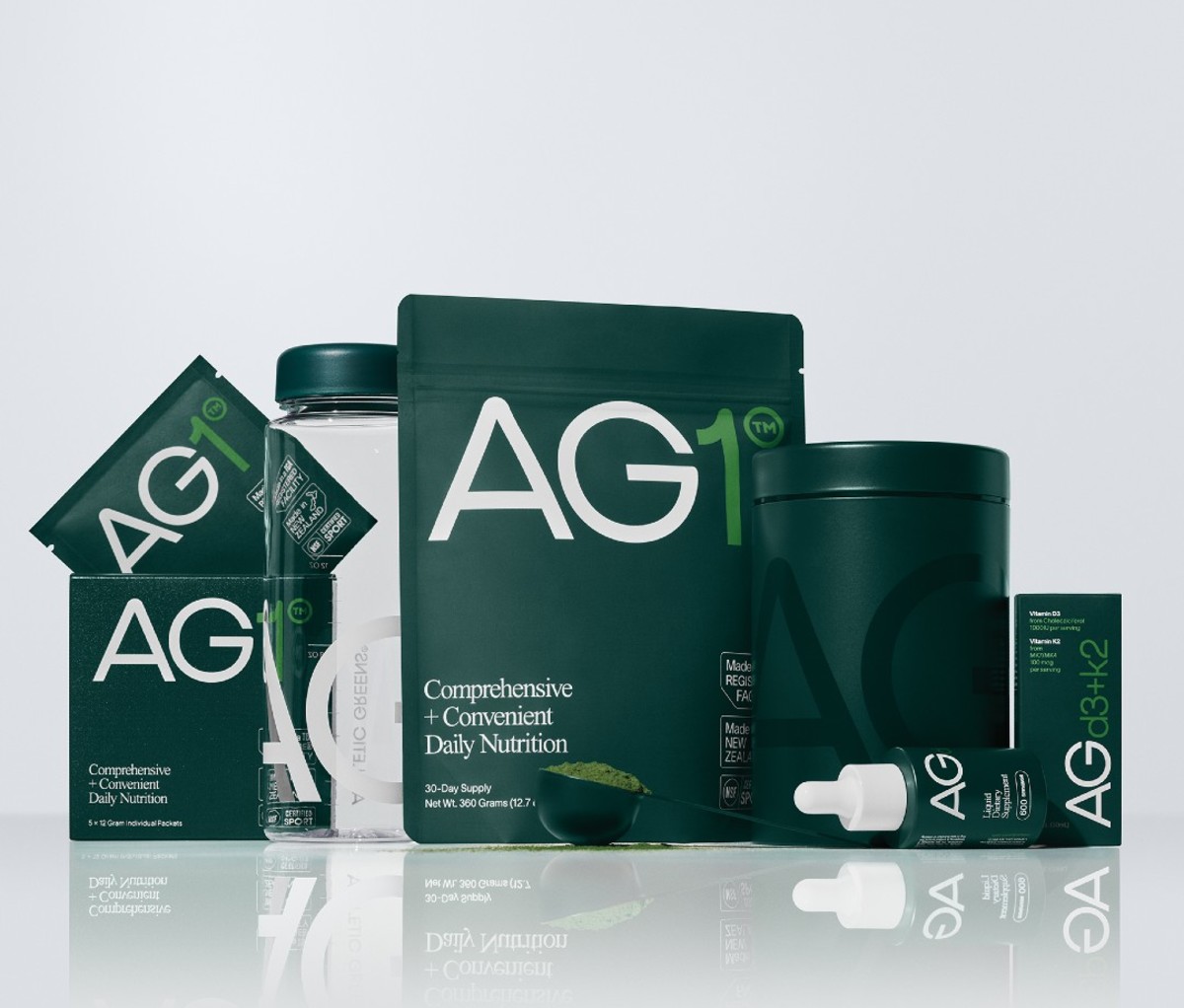
Athletic Greens AG1
One scoop of AG1 provides 75 vitamins, minerals, and whole-food-sourced ingredients geared toward aiding digestion, gut health, nervous system support, immunity, energy production, healthy aging, and hormonal and neural support. It’s vegan-friendly and ensures you’re getting the nutrition you need to feel and perform at your best.
For access to exclusive gear videos, celebrity interviews, and more, subscribe on YouTube!
Source link

